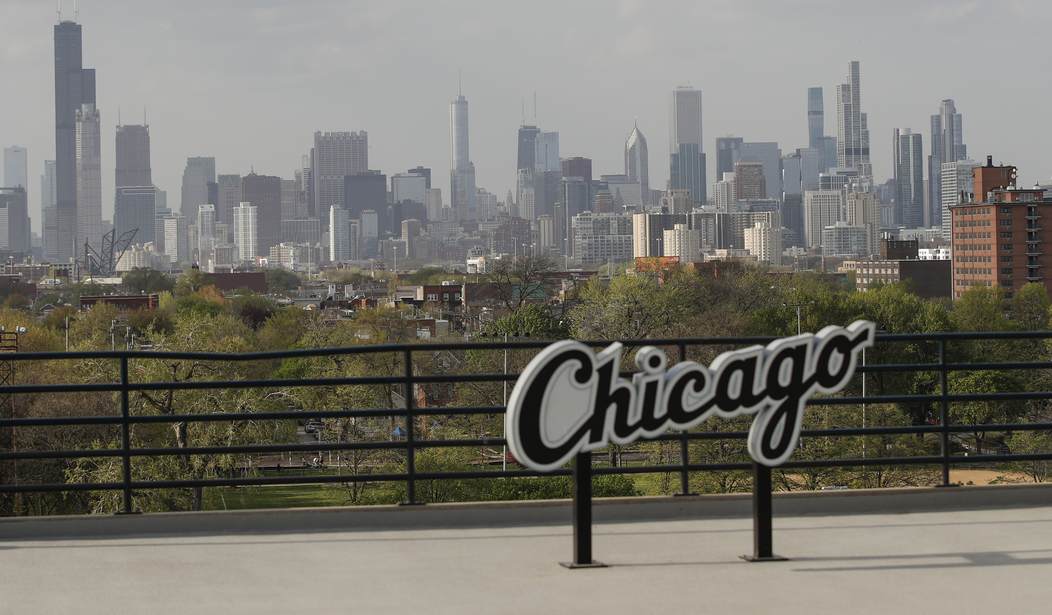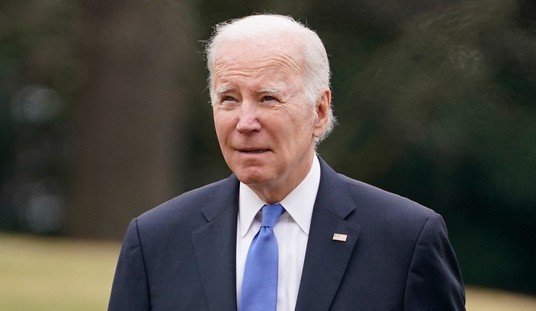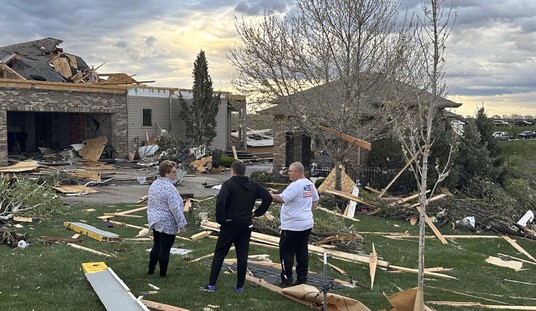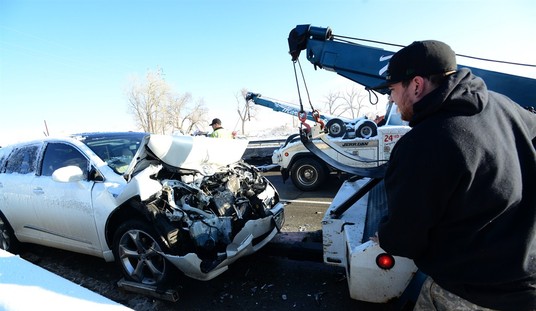As RedState's Ben Kew reported, early returns indicated that Chicago's new proposed "mansion tax" would go down in defeat, and after days of counting the vote—it's now officially dead.
It's a blow to Mayor Brandon Johnson and his progressive agenda, as voters gave the thumbs down to the tax—dubbed “Bring Chicago Home”—which would have raised the city’s real estate transfer tax on properties worth over $1 million. The proceeds would have been used to pay for services for homeless people.
It should have been called "Fleece Chicago Homes."
Although the final tally took days to count, early results showed where it was heading:
Chicago voters appear to have rejected a proposed "mansion tax" that would have fallen substantially on small businesses.@KELoughead's pre-election analysis: https://t.co/wOAoqWP90B pic.twitter.com/vmOjRvUrAW
— Jared Walczak (@JaredWalczak) March 20, 2024
Sometimes it’s hard to figure out voters in blue cities and states—they got rid of former Mayor Lori Lightfoot, a divisive ineffective leader, only to replace her with the even more radical Brandon Johnson? Hard to get one’s head around.
Note that the proposal “pitched” the idea of expanding the tax to all properties in the future (meaning they would almost certainly have done so it if given the opportunity):
The proposal would have incrementally raised the city’s real estate transfer tax on properties valued at more than $1 million. Supporters estimated it would have generated $100 million annually for homeless services, including for mental health care. There are roughly 68,000 homeless people in Chicago on any given night.
The measure also pitched lowering the transfer tax on properties under $1 million, which represents the vast majority of home sales in the nation’s third-largest city. [Bolding mine.]
Real estate interests were especially opposed, given that it would significantly impact their business:
Opponents, including real estate groups, argued the tax unfairly targets commercial properties and businesses as downtown is still rebounding from the COVID-19 pandemic. They initially won their lawsuit targeting the measure on constitutional grounds, but it was overturned by an appeals court. The Illinois Supreme Court declined their motion for an appeal.
Is this a sign that citizens are getting tired of all the progressive rhetoric and their policies, which inevitably fail and lead to ever larger homeless populations and higher crime in blue cities? I doubt Johnson will get the message, but at least voters sent it.
The vote came at an uncertain political moment in Chicago, a Democrat-dominated city where homelessness has become more visible since the pandemic and an influx of migrants has strained resources. And the result raised questions about the strength of the city’s progressive movement, led by Mr. Johnson, which has become the dominant force in City Hall over the last decade and which mobilized its army of volunteers to knock on doors in support of the tax change.
“Yes, it is a loss for Mayor Johnson and is a loss for the progressive movement,” said Dick W. Simpson, a former Chicago City Council member and an emeritus professor at the University of Illinois at Chicago who campaigned for the tax change.
Chicago Mayor Brandon Johnson's so-called 'mansion tax' failed mostly due to voters on the Near North Side lakefront and far NW and SW Sides.
— Dan Mihalopoulos (@dmihalopoulos) March 20, 2024
Good map and precinct-by-precinct breakdown here from the @Suntimes/@WBEZ data visualization aces https://t.co/a5IL19EtGg pic.twitter.com/jmN7LEF87r
Senior Vice President Hilary Gowins of the Illinois Policy Institute writes that Johnson needs to learn from his defeat:
It’s time for the Johnson administration to get to work on delivering what the people want. Bring Chicago Home would’ve hit Chicago’s commercial real estate market, which still hasn’t recovered from the pandemic shutdown. It would’ve driven up rent. It would’ve killed growth. Chicago needs to woo businesses, not chase them away. A healthy business climate will provide jobs and grow the whole tax base, which is the solution to the city’s fiscal problems and ultimately the only way we can effectively tackle tough socioeconomic problems such as homelessness.
In California, meanwhile, voters almost woke up, but being the Golden State, some of them went back to sleep as Gov. Gavin Newsom's signature $6.4 billion tax hike squeezed past with 50.2 percent of the vote. This was after "a one-sided campaign in which Newsom’s campaign committee benefited from a multimillion dollar warchest and little opposition." The measure seeks to combat homelessness and mental illness by doing what they always do—shovel more money at it.
As the unexpectedly tight results came back in, Newsom frantically scrounged for more votes because it would have been an absolute (and deserved) embarrassment for him to lose on this issue, which he'd put all his weight behind.
Although the measure passed, it was by a whisper and a sign that even some in the Golden State have had enough. The outcomes in Chicago and California would have been unthinkable just a few years ago, and while it's unclear whether this is the start of a national mood shift, they're encouraging signs.
One often wonders, just how far must our cities decline before voters say, "ENOUGH!"
More Chicago:
Homeless Encampments Overtake Chicago’s O'Hare Airport, Workers Say 'None of Us Feel Safe'
Hypocrisy, Much? 'Sanctuary City' Chicago Begins to Evict Illegal Aliens From City, State Shelters
As Illegals Push Chicago to the Breaking Point, Illinois Doubles Down on 'Sanctuary' Status












